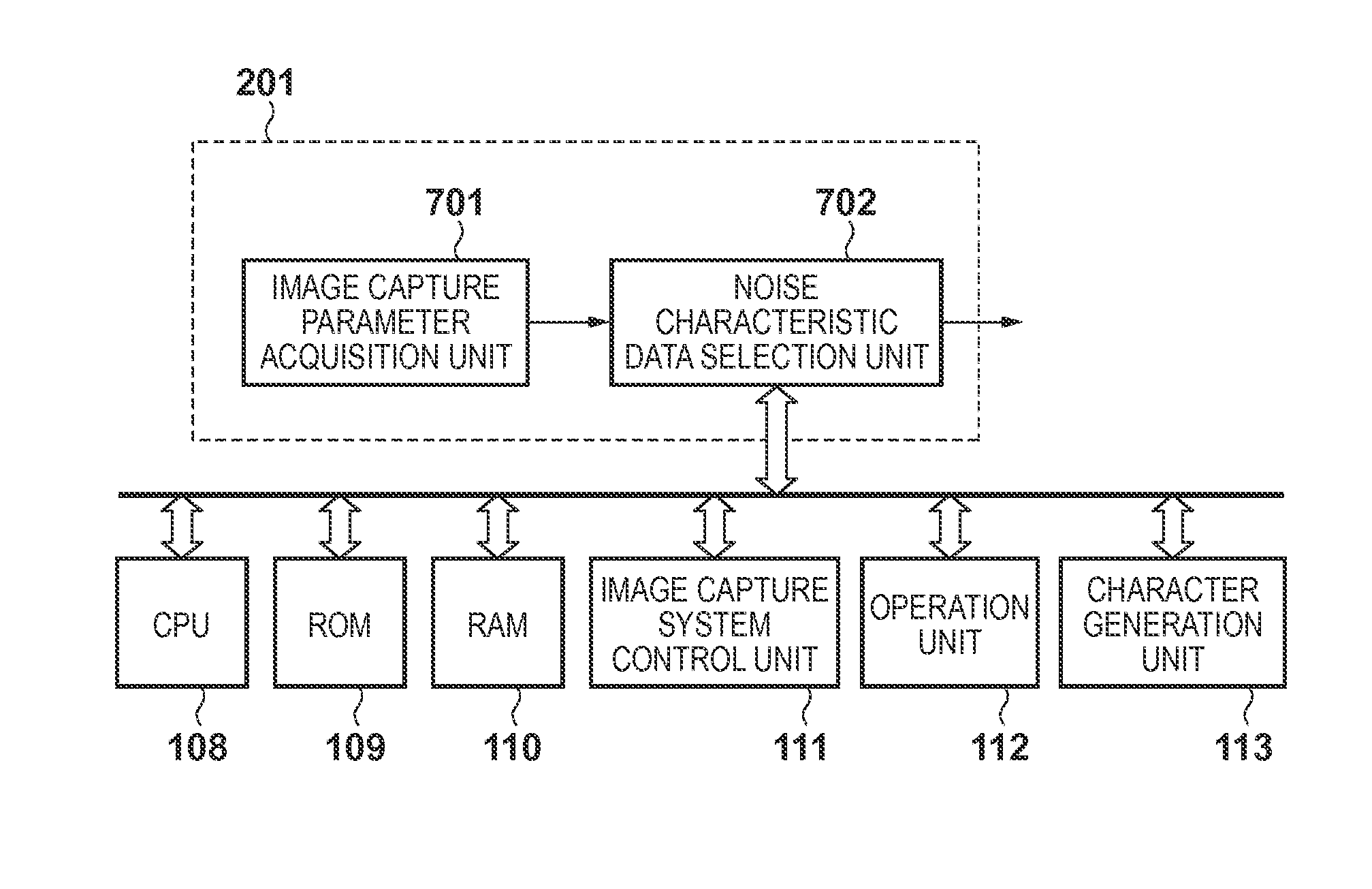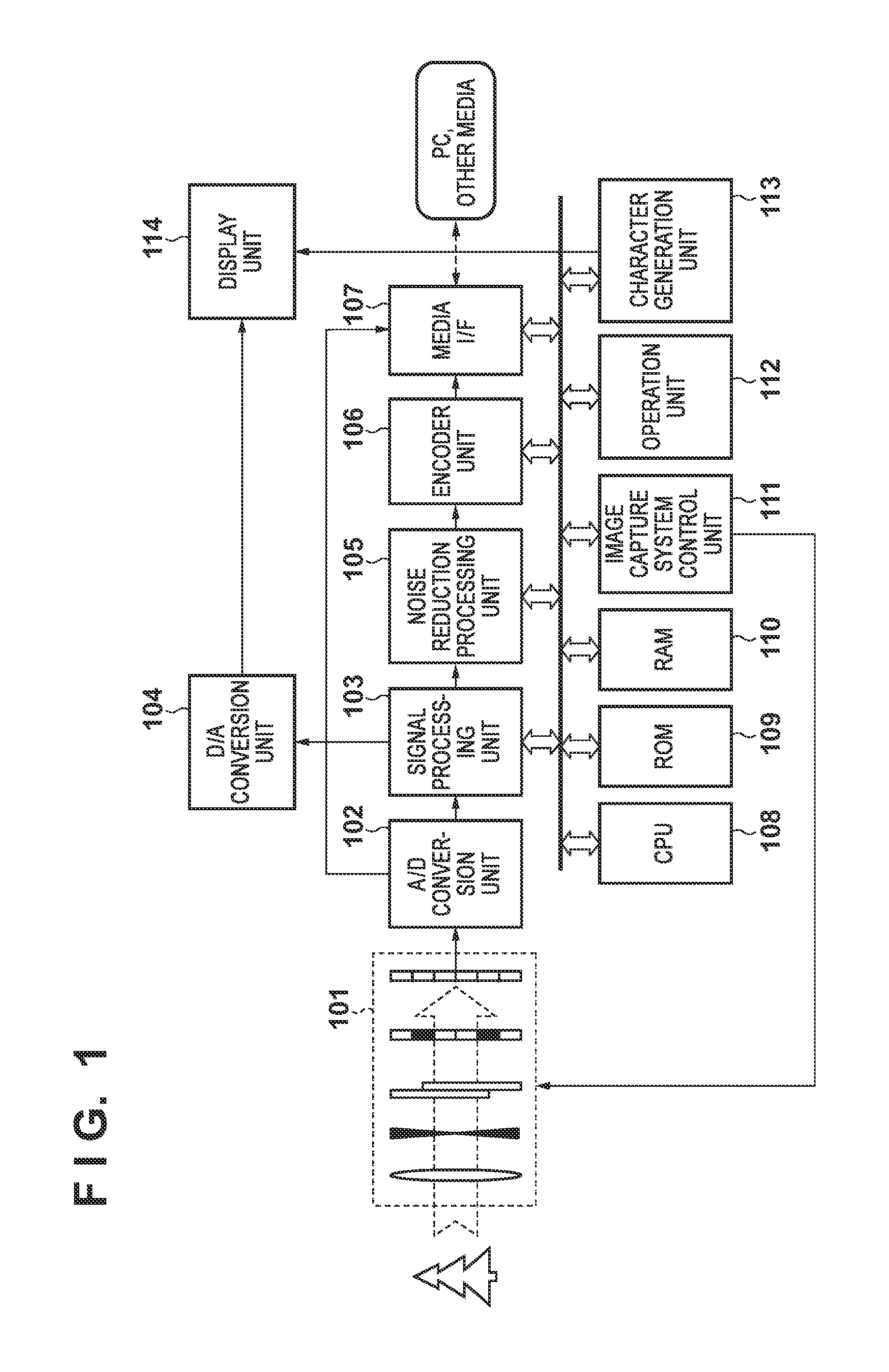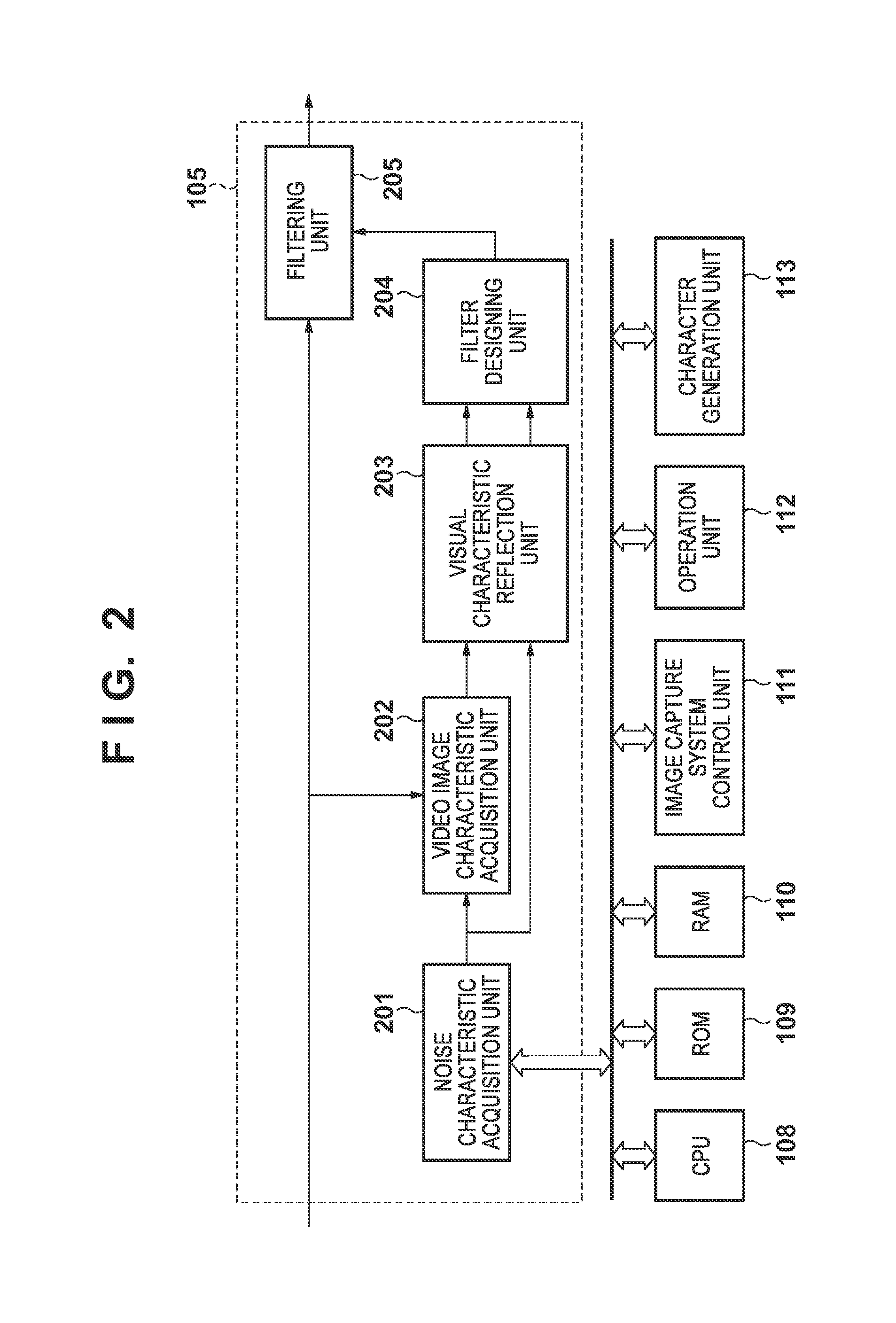Noise reduction apparatus and noise reduction method
a technology of noise reduction apparatus and noise reduction method, which is applied in the direction of color television details, television system details, television systems, etc., can solve the problem of not taking into account the variance of noise itself, and achieve the effect of improving the signal to noise ratio and being easily perceived
- Summary
- Abstract
- Description
- Claims
- Application Information
AI Technical Summary
Benefits of technology
Problems solved by technology
Method used
Image
Examples
embodiment 1
[0026]The present embodiment designs a filter for temporal noise reduction processing based on a temporal characteristic of noise and a temporal frequency response characteristic of vision. Specifically, a temporal characteristic of noise of an image capture device is acquired, and a Wiener filter is designed based on a noise characteristic that is multiplied by a time visual characteristic and an estimation value of a temporal characteristic of an ideal video image that does not have noise. Since the temporal characteristic of noise generally differs in accordance with image capture conditions, it is possible to apply an adaptive filter to noise reduction in accordance with noise and video image characteristics at the time of image capture. Moreover, with the present invention, since the time response characteristic of vision is taken into consideration when a filter is designed, the filter is designed such that a noise reduction effect is increased when a video image is viewed by ...
embodiment 2
[0068]In Embodiment 1, a method of capturing an image in a state in which a lens cover is closed was used in order to acquire a noise characteristic, and thus, a step for acquiring a noise characteristic for each image capture was required. In contrast, in the present embodiment, a pre-acquired noise characteristic is used when a filter is designed. In the present embodiment, some types of noise characteristics are acquired in advance in accordance with ISO sensitivity that have great effects on a noise characteristic to design a Wiener filter using them. In the present embodiment, it is possible to omit a step for acquiring a noise characteristic for each image capture, and thus, there is an advantage in capturing an image smoothly. A difference from Embodiment 1 will be described below.
[0069]Configuration of Noise Characteristic Acquisition Unit 201
[0070]The operations of the noise characteristic acquisition unit 201 will be described in detail below. FIG. 7 is a schematic diagram...
embodiment 3
[0073]In Embodiment 1, the ideal video image signal S that does not have noise was estimated based on the input video image signal V and the noise characteristic N. Thus, an error of estimating the video image signal S in Embodiment 1 was not prevented from occurring, and there was a case when a sufficient noise reduction effect was not obtained depending on a video image. In view of this, in the present embodiment, the ideal video image signal S that does not have noise is set as a reference video image captured in advance to design a Wiener filter. Here, the reference video image refers to a video image that has little noise. For example, examples of the reference video image includes a video image captured at low sensitivity under bright ambient light, and the like. In the present embodiment, the reference video image is acquired in advance in accordance with a frame rate and a shutter speed that have great effects on characteristics of the video image. A difference from Embodime...
PUM
 Login to View More
Login to View More Abstract
Description
Claims
Application Information
 Login to View More
Login to View More - R&D
- Intellectual Property
- Life Sciences
- Materials
- Tech Scout
- Unparalleled Data Quality
- Higher Quality Content
- 60% Fewer Hallucinations
Browse by: Latest US Patents, China's latest patents, Technical Efficacy Thesaurus, Application Domain, Technology Topic, Popular Technical Reports.
© 2025 PatSnap. All rights reserved.Legal|Privacy policy|Modern Slavery Act Transparency Statement|Sitemap|About US| Contact US: help@patsnap.com



